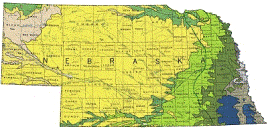United States Geological Survey

United States Geological Survey: Staff Publications
Document Type
Article
Date of this Version
10-14-2022
Citation
Ecological Engineering 186 (2023) 106819. https://doi.org/10.1016/j.ecoleng.2022.106819
Abstract
Coastal systems around the globe are being re-integrated with adjacent river systems to restore the natural hydrologic connection to riparian wetlands. The Mississippi River sediment diversions or river reconnections are one such tool to combat high rates of wetland loss in coastal Louisiana, USA by providing freshwater, sediment, and nutrients. There has been some disagreement in the published literature whether re-establishing river reconnection is slowing or contributing to coastal wetland loss. This issue is due to the difficulties in the application of remote sensing in low-relief environments where water level changes could indicate either land loss or simply temporary submergence. We analyzed land change at the receiving areas of two existing freshwater river diversions, Davis Pond and Caernarvon, which have been intermittently receiving river water for up to 2+ decades. This study provides a robust analysis of wetland land change rates in proximity these river diversions including years before river reconnection. Our analyses indicate a net land gain since river reconnection operations began at Davis Pond Diversion (+3.42 km2; range: +2.02–4.81 km2) and no statistically significant change at the Caernarvon Diversion. The Davis Pond wetland results are corroborated with data from a decadal field study documenting increased inorganic sedimentation in the soil. It is clear from this study and others, that river reconnection can increase or, in the case of Caernarvon, have no statistical effect on the land change in these systems due to differences in vegetation, hydroperiod, sediment delivery and external factors including hurricane impacts. Our remote sensing analysis was compared with a global water area change analysis mapping tool which also supported our findings.
Included in
Geology Commons, Oceanography and Atmospheric Sciences and Meteorology Commons, Other Earth Sciences Commons, Other Environmental Sciences Commons


Comments
U.S. government works are not subject to copyright.